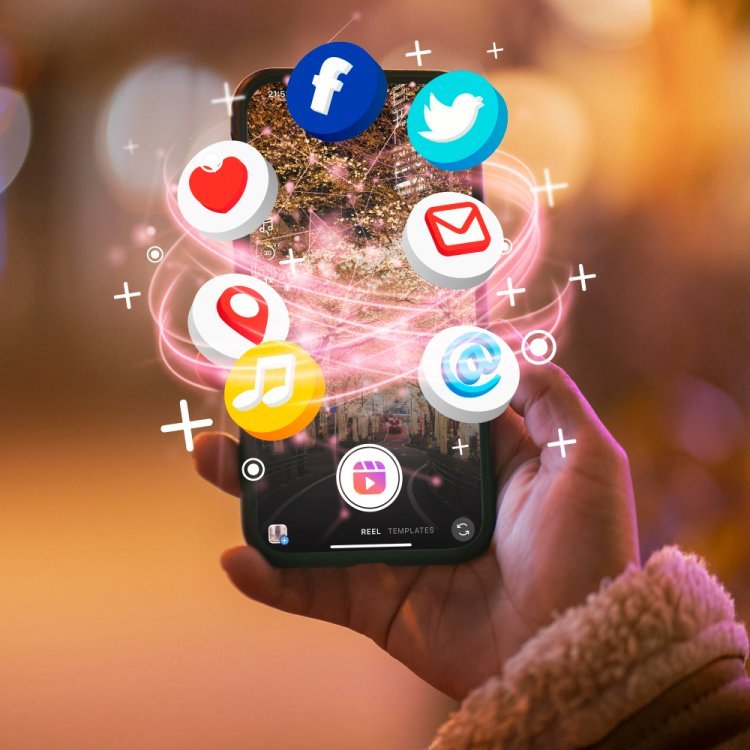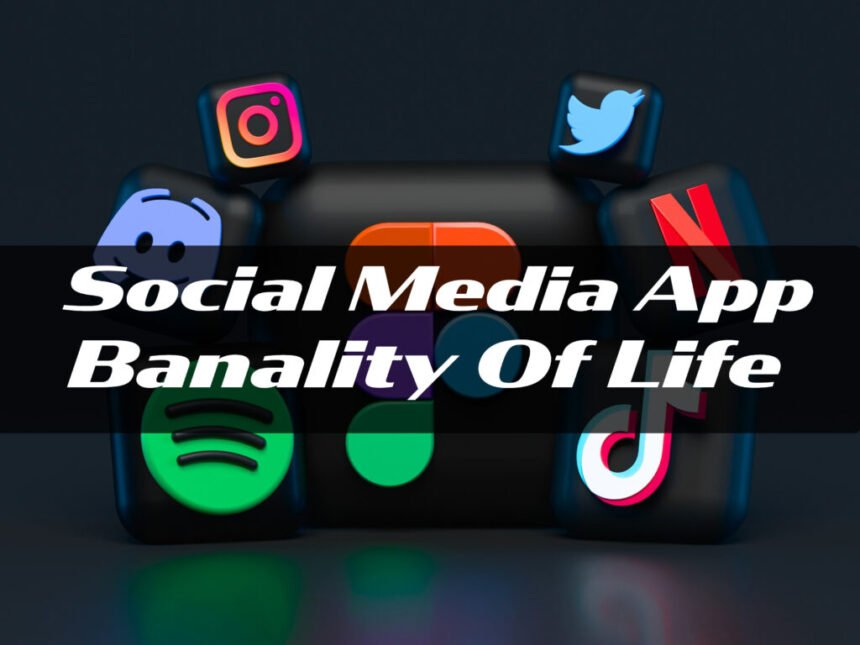Introduction
Social media has revolutionized the way we interact with each other and the world around us. From connecting friends across continents to sharing life milestones, these platforms have become integral to the modern experience. However, as social media use has grown, many are starting to question its influence on the essence of life and the emergence of banality. The term “social media app banality of life” refers to the idea that our lives have become repetitive, predictable, and lacking in genuine experiences due to overexposure to digital content and interactions. This article delves into the various ways social media contributes to this phenomenon.
The Impact of Social Media on Mental Health
One of the most significant effects of social media on modern life is its impact on mental health. Platforms often showcase idealized versions of people’s lives, leading to a culture of comparison. Individuals find themselves constantly comparing their real-life experiences to the filtered, curated content they encounter on social media. This comparison culture can contribute to feelings of inadequacy and low self-esteem, as people may feel pressured to conform to unrealistic standards.
Furthermore, constant exposure to digital content can trigger feelings of isolation and loneliness. The pressure to remain active and engaged on social media platforms can also create a sense of urgency and anxiety. The fear of missing out (FOMO) on updates, events, or interactions can lead to increased stress and a perpetual need to stay connected.
The Role of Social Media in Shaping Societal Perceptions
Social media plays a crucial role in shaping societal perceptions and influencing cultural norms. Platforms often highlight curated lifestyles, filtered realities, and superficial interactions, which can impact the way we view ourselves and others. The algorithms behind these platforms can also dictate the content we consume, leading to echo chambers where we are only exposed to viewpoints that align with our own.
This influence can affect the broader culture by perpetuating certain ideals and trends. Over time, these digital platforms have become a primary source of information, guiding our understanding of societal values and shaping our perspectives.

The Decline of Face-to-Face Interactions
One of the most significant changes in the digital age is the decline of genuine, face-to-face interactions. Social media platforms have provided convenient alternatives to traditional communication, often overshadowing in-person connections. The rise of instant messaging and social media platforms has led to a shift in how we relate to one another. Digital communication can be convenient and efficient, but it often lacks the depth and authenticity of real-world interactions.
This shift has also affected the quality of interpersonal relationships. Many people find themselves more invested in online interactions than in nurturing physical connections. This change can lead to a sense of loneliness and disconnection from the real world.
The Influence of Social Media on Productivity and Time Management
Social media platforms are notorious for being major distractions in the digital age. Notifications, feeds, and constant updates can interrupt our focus and consume precious time. The easy access to information and endless streams of content can create a sense of urgency to keep scrolling, leading to a loss of productivity and time management challenges.
Moreover, the role of notifications in keeping users engaged can further exacerbate time wastage. The allure of quick dopamine hits from likes and comments can be irresistible, leading to prolonged sessions on these platforms.
Social Media’s Role in Political and Social Movements
Social media has a dual nature in shaping political and social movements. On one hand, these platforms can amplify voices that might not otherwise be heard. Activists and advocates have found social media to be a powerful tool in mobilizing support for causes and raising awareness. The ability to reach a global audience quickly and efficiently has empowered individuals and groups to drive change and foster discussions on important topics.
On the other hand, social media platforms can also contribute to the superficiality of these movements. The rise of clicktivism and shallow support campaigns can sometimes overshadow genuine activism, making it easier for individuals to express support without meaningful participation.
The Rise of FOMO (Fear of Missing Out)
The digital age has brought with it the phenomenon of FOMO. The constant updates and the pressure to stay connected can create a sense of urgency to be a part of everything happening online. This need to stay updated can lead to stress and anxiety, as individuals may feel compelled to be active and engaged at all times.
The fear of being left out of conversations, events, or trends can affect mental well-being, as people may struggle to manage their online presence and real-life experiences. Balancing both can become overwhelming and create a constant state of tension.
The Role of Social Media in Shaping Consumer Culture
Social media platforms have become powerful tools in influencing consumer culture. Advertisers and businesses leverage these platforms to promote their products and services, often targeting users based on their interests and online behavior. The ability to curate targeted ads has made social media a key player in shaping purchasing decisions and consumer preferences.
Moreover, the influence of social media can create a culture of consumerism, where individuals are constantly bombarded with advertisements and promotional content. This effect can lead to impulsive buying and a shift in how people perceive value and material possessions.
Banality of Life in the Digital Age
In the digital age, the cyclical nature of online content has led to the banality of life. Many find themselves engaging in predictable, repetitive interactions online, leading to a sense of monotony. The desire for new and exciting experiences often takes a back seat to the convenience and familiarity of digital platforms.
The repetitive nature of content creation and consumption can also contribute to a lack of genuine engagement and exploration. People may find themselves stuck in the digital hamster wheel, where everything seems to blend together in a sea of notifications and feeds.

The Impacts of Social Media on Real-life Experiences
The influence of social media can sometimes overshadow genuine real-life experiences. Many find themselves more invested in documenting their lives online than actually living them. This shift can affect hobbies, personal growth, and the overall quality of life.
Moreover, the pursuit of social media validation can lead to individuals prioritizing online appearances over authentic experiences. This shift can create a sense of disconnection from the real world and hinder personal development.
Conclusion
In conclusion, social media app banality of life platforms have a profound impact on our lives, affecting mental health, societal perceptions, and the quality of our real-world experiences. While these platforms offer convenience and connectivity, it’s essential to recognize their potential drawbacks. Finding a balance between online engagement and genuine real-life experiences is crucial for maintaining mental well-being and authenticity in the digital age.
FAQs
- How does social media contribute to the banality of life?
- Social media contributes to the banality of life by fostering predictable, repetitive interactions and highlighting curated, filtered lifestyles that can overshadow genuine experiences.
- Can social media have a positive impact on mental health?
- Yes, social media can have a positive impact by connecting individuals with like-minded communities and providing support groups. However, it can also contribute to feelings of isolation and comparison.
- What role does social media play in influencing cultural norms?
- Social media plays a significant role in influencing cultural norms by curating and promoting specific lifestyles, trends, and ideas. Algorithms and content curation can shape public perception and reinforce certain cultural attitudes.
- How does social media affect real-life relationships?
- Social media can erode real-life relationships by shifting communication to digital platforms, often resulting in superficial interactions and a decline in face-to-face connections.
- Can social media be beneficial for activism?
- Yes, social media can be a powerful tool for activism by enabling rapid dissemination of information, mobilizing support, and amplifying voices that advocate for social change.
See More: RowNavigator.com: The Ultimate Guide to Efficient Row Navigation in Data Systems


